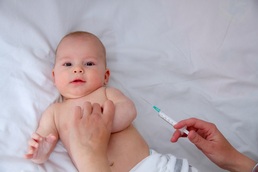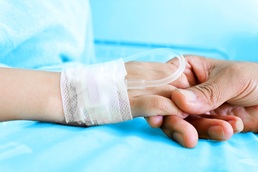Number of cancer deaths in children and young people down almost 60 per cent
The number of deaths causes by cancer in children and young people has dropped by almost 60 per cent in the last 40 years, according to charity Cancer Research UK.

The reduction in the number of cases is attributed to improvements in treating the disease in young people under the age of 24, the charity reported that during the 1970s there were 1,300 cancer deaths in young people and children each year which is now anticipated at less than 600 each year.
The greatest reduction is in cases related to young people and children with leukaemia, where the number of deaths has decreased by nearly 40 per cent in 10 years meaning around 70 less young people and children are losing their lives to leukaemia each year.
Chief executive for Cancer Research UK, Harpal Kumar said: “Cancer causes more deaths among children and young people than any other disease in the UK, so it’s hugely encouraging to see that death toll now falling steadily. But as the largest funder of research into children’s cancers in the UK, we will keep going until no young lives are lost to cancer.”
Although the cancer death rates in children and young people have dropped dramatically, cancer is still the most common killer of children with brain tumours being the most common form of cancer.
Director of the Cancer Research UK Clinical Trials Unit in Birmingham, Professor Pam Kearns, said: “These figures are testament to the real progress we’re making in treating children and young people with cancer. Cancer Research UK has been instrumental in this progress. But hundreds of young people are dying from cancer each year in the UK, which means there’s still much more we need to do.”
The new results have been released in time for the launch of the charity’s latest campaign for Kids and Teens to raise money for research into more gentle, effective treatments and cures for cancer in young people.
Professor Kearns continued: “Every day, I see the extreme bravery of children and young people going through difficult treatments. Whilst many go on to live full lives, they may have to deal with the side-effects of treatment for years to come. So it is vital that we continue to increase funding for research into kinder and better treatments that will offer new hope to children and their families.”

Cancer Research UK reports that children with cancer can spend long periods of time away from their families and friends having painful treatments which can leave long term lasting side-effects such as disabilities and fertility problems.
Fiona Barnett is a mother from Wimbledon, she was told that her son Rufus had leukaemia when he was six. This week she participated in a reception that was hosted at 10 Downing Street by Samathana Cameron to launch the Cancer Research UK Kids and Teens campaign, she said: “When they told me it was leukaemia my first question was ‘is he going to die?’ Treatment started immediately and over the course of that first year Rufus had to endure seemingly nonstop lumbar punctures, injections and general anaesthetics, not to mention infections, horrible medicines and hideous side-effects. It felt like it would never end, but one year after diagnosis we were so relieved to hear that Rufus was responding well, which indicated that he had a very good chance of complete recovery.
"We would like to thank all the doctors and nurses who continue to care for Rufus for the duration of his treatment, and for that wonderful moment when we were given genuine hope for him beating this horrible disease. It is also impossible to ignore the decades of research that have given us the chance of a happy ending, and that have ensured that the treatment Rufus receives has the potential to be so successful, for that we will be forever grateful."
The charity reports that each year in the UK alone, approximately 1,600 children receive a cancer diagnosis whilst 2,200 young adults and teenagers are diagnosed. Of those, almost three times as many children up to the age of 14 now survive cancer than they did during the 60s.
Mr Kumar added: “Money raised by ‘Cancer Research UK Kids & Teens’ will be restricted to research into cancers affecting children, teenagers and young adults, enabling us to better understand these cancers and find better and kinder treatments and cures. In the next 5-10 years Cancer Research UK hopes to double the amount it spends on these cancers.”
Latest News
 29-Jul-24
Dementia Bus gives carehome.co.uk staff insight into life with dementia
29-Jul-24
Dementia Bus gives carehome.co.uk staff insight into life with dementia
 27-Jul-23
UK's top home care agencies in 2023 revealed
27-Jul-23
UK's top home care agencies in 2023 revealed
 30-Nov-22
A quarter of older people keep their falls secret from family
30-Nov-22
A quarter of older people keep their falls secret from family
 29-Nov-22
'Covid-19 has not gone away' say terminally ill
29-Nov-22
'Covid-19 has not gone away' say terminally ill
 28-Nov-22
IT consultant who received poor care opens 'compassionate' home care business
28-Nov-22
IT consultant who received poor care opens 'compassionate' home care business